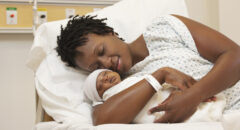
If you are obese and you want to try to lose some weight to boost your chances of getting pregnant, a new study suggests it might not help with infertility.
What did the researchers find? There was no significant difference in rates of healthy births among obese women with unexplained infertility who had lost weight and those who had not.
Q&A: 3 Things You Should Know About Black Women and Fertility
Infertility and obesity
“We have known for decades that obese women often have difficulty getting pregnant,” says Daniel Haisenleder, from the University of Virginia’s Center for Research in Reproduction, in Charlottesville. “For this reason, many physicians advise weight loss prior to conception. However, there are few studies that have addressed the issue comparing a healthy lifestyle – i.e., exercise – versus exercise plus weight loss.”
To explore that question, Haisenleder and his colleagues conducted their study at nine medical centers across the United States and looked at 379 obese women with unexplained infertility.
Half of the women were assigned to a 16-week intensive diet using meal replacements, medications and increased physical activity. The other half did more exercise without trying to lose weight.
After completing those programs, both groups received three rounds of standard infertility treatments.
Women in the diet program ended up losing an average of 7% of their body weight, while those in the exercise-only group typically stayed the same weight, the investigators found.
Overall, 23 of the 188 women in the diet program and 29 of the 191 in the exercise-only group gave birth, according to the report published online recently in the journal PLOS Medicine.
The diet program did provide health benefits for the women who completed it, the study authors said. In addition to losing weight, these








